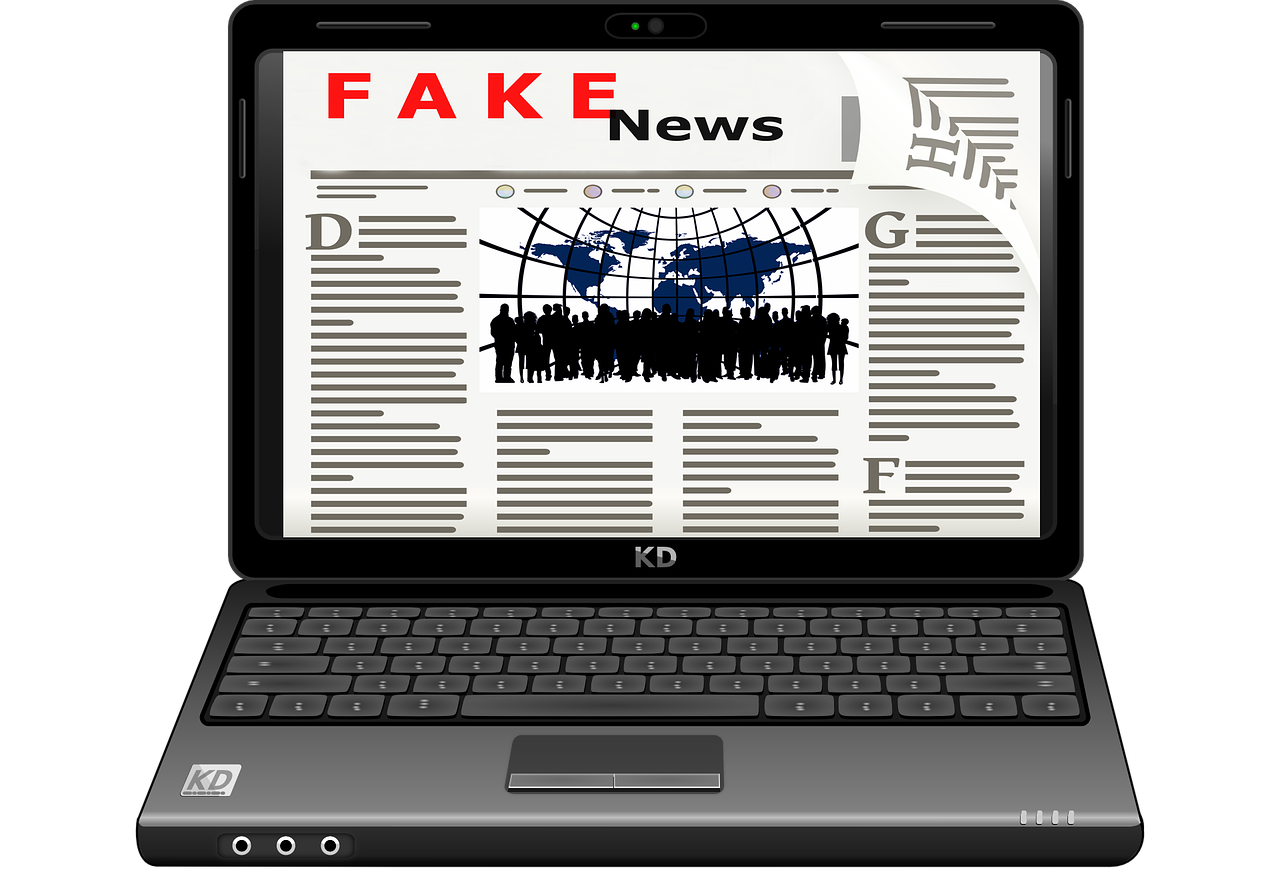Opinion | Monday, 29th November 2021
Fake news is bad for society, but could it also be bad for your health?
Research shows that with training, believing fake news can be reversed, says Dr Geoff Walton

by Dr Geoff Walton, Senior Lecturer in Information and Communications
Misinformation is not new, but what is most certainly new is the speed of dissemination and sheer volume.
In the social media age, fake news is ubiquitous, and that’s never been as more obvious as during the COVID-19 pandemic People have been exposed to all manner of misleading information and complete untruths, which has even included the wild claim that 5G microchips used for mobile phones and other devices to communicate were contained in the vaccines. Some even claimed it was all a grand masterplan from Microsoft founder Bill Gates. The global - -often unchecked - echo chamber of social media means a lie can travel halfway around the world before the truth has even had chance to put its boots on, to borrow a popular phrase.
This has sparked warnings from medical experts and interventions from leading politicians who real fears that it could undermine the vaccine programmes cross the world and attempt to get COVID under control
Indeed, such as its ubiquity, fake news was popular refrain from former US President Donald Trump would use in his attempts to discredit critics.
But one of the major impacts, alongside the wider impact on society such as the vaccine rollout, is the impact on the health of people who themselves buy into the misinformation, as our new research shows.
Luckily, the ability to discern what s true and what is fake news, can be trained in people to combat the negative effects.
Misinformation, disinformation, fake news, alternative facts - whatever you want to call it - is spread for all kinds of reasons.
Sometimes for fun – I’m thinking of the BBC’s April Fools broadcast of the spaghetti harvest in the 1950s, but sometimes for altogether more malevolent ends such as, QAnon and the ‘Stop the Steal’ campaign which lead to ugly riots and death at the heart of US democracy. Sometimes credible organisations make mistakes which can have serious consequences such as the MMR vaccine scandal and the subsequent measles epidemic in the UK in the 1990s.
The UK government recently foregrounded the issue in its Online Media Literacy Strategy. But why is misinformation and fake news so attractive?
It is because it has many seductive details which lure people into reading or watching. Good quality information deliberately does not use seductive details and so is more sober and less appealing.
Health risks
This is not only a problem regarding how people act on misinformation, but there is a deeper - potentially more serious - underlying issue at play. We know that ‘fake news’ can be corrosive to society and to politics, but what you probably didn’t know is that being simply being exposed to misinformation itself may bad for your health.
Our new research on the effects of misinformation suggests that, under certain circumstances, simply when a person encounters misinformation, even by just reading or being told about it, can affect an individual’s physical wellbeing very directly.
A team of scientists from Loughborough, Manchester Metropolitan, Northumbria and Staffordshire Universities discovered this in a new study.
Our new research on the effects of misinformation suggests that, under certain circumstances, simply when a person encounters misinformation, even by just reading or being told about it, can affect an individual’s physical wellbeing very directly.
Participants were asked to complete a questionnaire that measured how they make judgements about information they read. We found that for participants who scored low on the questionnaire, and therefore have poorer ‘information discernment’, their cardiovascular system (including heart rate) actually went to react negatively to a stressful task they were subsequently asked to complete. Conversely those that scored highly on the questionnaire and have stronger information discernment reacted in a positive way to the stressful task.
What does this mean?
People who scored low on our questionnaire are more likely to not question the source of information, its veracity, or how they found it. They were then found more likely to exhibit signs of physical stress, for example a low increase in cardiac output and an increased resistance to blood flow within the blood vessels – which are negative physiological responses to stress.
Now imagine people already in a stressful situation, as in the current COVID-19 pandemic. This group of people may not only make poor decisions about health-related information, such as whether to believe a conspiracy theory about the COVID vaccine, but it will also have a negative effect on their heart.
The lack of a protective vaccine plus the negative physical reaction caused by their poor skills in judging information may be having an even greater effect on people than we previously thought.
The science
The BioPsychoSocial Model (BPSM) of Challenge and Threat may aid understanding of the physiological factors that could underpin psychological states associated with information literacy, and explain why we got the results that we did.
The BPSM theorises that individuals respond to stressful situations with either an adaptive (challenge) or maladaptive (threat) response, dependent upon an individual’s often unconscious evaluation of the situation.
For example, a challenge state will occur if an individual unconsciously evaluates their resources (i.e., self-efficacy, perceptions of control, and goal orientation) to be sufficient to meet the perceived demands of the situation. Whereas a threat state will ensue if these resources are not sufficient to meet the perceived demands.
These unconscious evaluations can lead to both mental and physical health implications, including poor mental health and cardiovascular disease.
The solution?
There are a number of ways that people’s information discernment can be improved, to help them recognise and resist the seductive effect of misinformation.
Other researchers have created an interactive board game that works a bit like a vaccine. It proposes that exposing participants to a weak form of misinformation can neutralise persuasive but false arguments disputing climate change, allowing for better identification of misleading information
We also believe that young people can be taught better information discernment skills. Our research has shown that for both 16-17 year-olds and 18-24 year-olds a fairly simple information literacy training course can improve how people go about making well-calibrated judgements about information.
There are a number of ways that people’s information discernment can be improved, to help them recognise and resist the seductive effect of misinformation.
For example, the training could focus on having the participants ask questions of the information displayed on a webpage such as - why is the information there,who has created it, why have they created it, are they experts, is it based on research or is it opinion, is there an ulterior motive and is it well-written?
Training is most successful when it is delivered within the learners’ context using examples that they are familiar with. It is about having a conversation rather than telling people what to think. The more people participate in finding their own solution, in collaboration with expert guidance, the more they are likely to adopt more sophisticated strategies for judging information. Finally, the training should be practical rather than theoretical so that people can apply what they have learnt to their immediate situation.
By offering these training course in schools and colleges or more broadly via public libraries or other public venues, we can begin to enable people to actively resist the worst effects of misinformation - perhaps have a less stressed and altogether healthier population.




